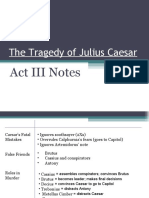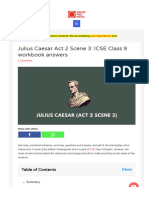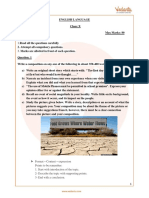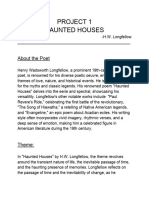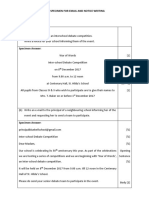CLASS-9 JULIUS CAESAR ACT-1&2
Maximum marks-80 Time – 2hrs [15 mins reading time]
QUESTION-1 ANSWER ALL QUESTIONS [16]
a] What are the two tribunes concerned about?
i] Civil War in Rome [ii] Caesar’s growing popularity [iii] Crowd [iv] The jokes of the common people
b] How does Cassius manipulate Brutus during the conversation in Act-1?
i] By suggesting Brutus will lose the Roman people’s respect
ii] By overtly threatening Brutus
iii] By appealing to Brutus’ sense of responsibility.
iv] By making Brutus feel guilty for ignoring Cassius
c]What does Cassius and Brutus’ exchange reveal about Brutus’ inner conflict?
i] He is conflicted between his affection for Caesar and his political ideals [ii] He is conflicted
between his loyalty to Caesar and his loyalty to Cassius [iii] He is conflicted between his distrust of
Caesar and his belief that Caesar will be a great ruler [iv]He is conflicted between his duty to Caesar
and his political ambition
d] According to Casca in his conversation with Brutus ,what event caused Caesar’s sadness?
i] Caesar was asked to be made King but was denied the crown
ii] Caesar was forced to accept the crown
iii] Caesar refused the crown when offered
iv] Caesar understood that he will not be allowed to wear the crown.
e] What does Cassius believe about the success of his cause against Caesar?
i] It relies on his ability to manipulate Brutus
ii]It depends on the public’s perception of Caesar
iii] It hinges on his own ability to rally the citizens
iv] It depends solely on his own determination and cunning
f] What does Cassius imply about Caesar in his conversation with Casca?
i] That Caesar has become a threat to Rome
ii] That Caesar has been cursed by the Gods
iii] That Caesar is the saviour of Rome
iv] That Caesar’s rule is blessed by the Gods
g] What message does Brutus interpret from the letter Lucius delivers to him?
i] He is advised to seek forgiveness from Caesar for his past wrongs
ii] He is warned about imminent danger from the meteors falling in Rome
iii] He is informed about the political conspiracy against him
iv] He is called upon to prevent Rome from falling under a king’s rule.
h] Why does Brutus object to Cassius’ proposal of an oath among the conspirators?
i] He believes Romans should trust one another without needing an oath
ii] He fears someone could overhear the conspirators pledging an oath.
iii]He thinks the oath would legally implicate them in the conspiracy.
iv] He wants the conspirators to remain free to change their minds
1
�i] Why does Brutus reject the idea of killing Mark Antony?
i] He believes Mark Antony is too discerning to be caught off guard
ii] He argues that their duty is to sacrifice Caesar not become butchers.
iii] He believes Mark Antony could be an ally after Caesar’s death.
iv] He believes killing two people would draw too much attention.
j] What does Caius Ligarius’ metaphor of bodily sickness symbolize in the context of Rome?
i] it represents the Roman military’s failures
ii] it reflects the poor healthcare system in ancient Rome
iii] it symbolizes the dysfunction of Roman society
iv] it illustrates Caesar’s weak leadership
k] What does Caesar’s final decision to go to the Senate House reveal about his nature?
i] He is resentful of Calpurnia and eagerly betrays her trust.
ii] He is deeply loyal to Rome and is willing to take risks for the people of Rome.
iii] He is highly logical and doesn’t take superstitions seriously.
iv] He is susceptible to flattery and puts political ambition over personal safety.
l] What does Artemidorous plan to do to help Caesar?
i] He will confront the conspirators directly
ii] He will put Caesar aside and tell him about the conspiracy
iii] He will try to persuade the Senate to protect Caesar
iv] He will warn Caesar of the conspiracy in a letter.
m] What does Portia’s statement “a man’s mind but a woman’s might” suggest her view on
gender roles?
i] She thinks women are physically weaker than men.
ii] She feels powerless in her role as a woman.
iii] She views her own mentality as more masculine than feminine.
iv] All of the above.
n] How does Caesar justify his decision to leave the house despite the omens and Calpurnia’s
warning?
i] He feels that he has the power to control his own destiny.
ii]He thinks that omens are not necessarily about him and that fate is inescapable.
iii] He is confident that the Gods will protect him even if the omens are true.
iv] He disregards Calpurnia’s fears as irrational
o] Why does Brutus refuse to include Cicero in the plot to assassinate Caesar?
i] He thinks Cicero is too old to be involved
ii] He feels Cicero might back out at the last moment.
iii] He believes Cicero is not likely to be a follower
iv] He suspects that Cicero might betray the other conspirators.
p] How does Decius interpret Calpurnia’s dream about Caesar’s death?
i] He will die when his mission has been fulfilled
ii]He will be a wellspring of life and love for the senate
iii]He will give new life and vitality to Rome
iv] His blood will renew Rome
ANSWER THE FOLLOWING QUESTIONS
2
�2] BRUTUS :Then, lest he may, prevent. And, since the quarrel
Will bear no colour for the thing he is,
Fashion it thus: that what he is, augmented,
Would run to these and these extremities;
And therefore think him as a serpent’s egg
Which, hatch’d, would, as his kind, grow mischievous,
And kill him in the shell.
a] “So Caesar may”. What may Caesar do? Your answer must refer to the metaphor, used by Brutus
in his speech. How does Brutus intend to prevent Caesar from doing so? [3]
b] Who has convinced Brutus to take such a step? What is the motive of Brutus for taking such a
decision as expressed in the extract? [3]
c] Give the meaning: “And, since the quarrel/ Will bear no colour for the thing he is / Fashion it
thus.” [3]
d] What is meant by augmented? How can Caesar be augmented? How had there already been an
attempt to augment him? [3]
e] To whom is a serpent’s egg compared? What does Brutus want to communicate by using
comparison of a serpent’s egg [4]
3] ANTONY : Fear him not, Caesar; he’s not dangerous.
He is a noble Roman, and well given.
CAESAR : Would he were fatter! But I fear him not.
Yet if my name were liable to fear,....
a] Who does Caesar fear? What is his observation? [3]
b] Why does Caesar have an angry glow on his face? [3]
c] What kind of men does Caesar like about him? [3]
d] Who gave a warning to Caesar? What was Caesar’s reaction to it? [3]
e] How do you understand that Caesar was very popular? [4]
4] CASCA : Your ear is good. Cassius, what night is this!
CASSIUS : A very pleasing night to honest men.
CASCA : Who ever knew the heavens menace so?
a] What has happened to make Casca so disturbed? [3]
b] What did Cicero say about these times? [3]
c] In what way did Cassius tempt heavens? [3]
d] Why is Casca considered dull without any spark? [3]
e] What does Cassius say about Romans now? [4]
5] CALPURNIA : What mean you, Caesar? Think you to walk forth?
You shall not stir out of your house today.
CAESAR : Caesar shall forth. The things that threatened me
Ne’er looked but on my back. When they shall see
The face of Caesar, they are vanishèd.
a] What did Caesar do before Calpurnia enters? [3]
b] What furthermore has Calpurnia learnt about the night? [3]
c] What had Calpurnia dreamt that night? [3]
d] Why does Calpurnia say that Caesar’s wisdom is consumed in confidence? [3]
e] Who enters? How does he interpret Calpurnia’s dream? [4]















